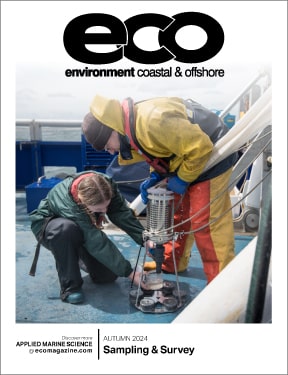Findings during the analysis period of November 30, 2022, to February 1, 2024, include:
- More than 2,700 fishing vessels spent over 180 days at sea and conducted nearly 2,800 voyages.
- China had the most fishing vessels engaged in long voyages (1,502 total), followed by Taiwan (285), Japan (106), South Korea (103), and Canada (96).
- Nearly 23% of fishing vessels (617 total) remained at sea for more than one year. More than 120 vessels spent longer than two years at sea.
- The longest voyage lasted almost 1,100 days, which is more than three years. Another vessel had a 730-day voyage that circled the entire globe.
- Approximately 1,500 Chinese-flagged vessels traveled an average of nearly 350 days without visiting a port.
- One squid fishing boat (also called a “squid jigger”) flagged to China spent 758 days at sea between port visits, never coming closer than 150 nautical miles to shore. Approximately 40% of all squid jiggers had a voyage lasting longer than one year.
- 3,800 potential transshipment events occurred on 726 voyages during the analysis period. Transshipment occurs when a fishing vessel links with a large, refrigerated cargo ship to unload its catch before the vessel is refueled and resupplied. Crew members can also be exchanged during transshipment events, extending the amount of time they remain working at sea.
“Extensive time at sea keeps vessels away from scrutiny and increases the risk of illicit conduct on the high seas,” said Oceana Campaign Director Dr. Max Valentine. “Without port visits, these vessels can avoid oversight for sometimes years at a time. We cannot have accountability at sea without transparency at sea. Most US seafood that is in our stores, restaurants, and schools is imported, which means American consumers are at risk of purchasing products which could have been caught illegally or by using forced labor from these long voyages. Countries around the world must adopt policies to increase transparency at sea to mitigate risks to our oceans and those who depend on them.”
Oceana analyzed vessel activity using Automatic Identification System (AIS) data from Global Fishing Watch (GFW), an independent nonprofit founded by Oceana in partnership with SkyTruth and Google. AIS devices transmit information such as a vessel’s name, flag state, and location.
Oceana calls on governments like the United States to adopt policies that enhance transparency at sea. These include mandating AIS usage on all fishing vessels, requiring key data elements—such as a vessel’s time at sea—to be part of catch documentation for imported seafood, and strengthening the regulation of transshipment events.

